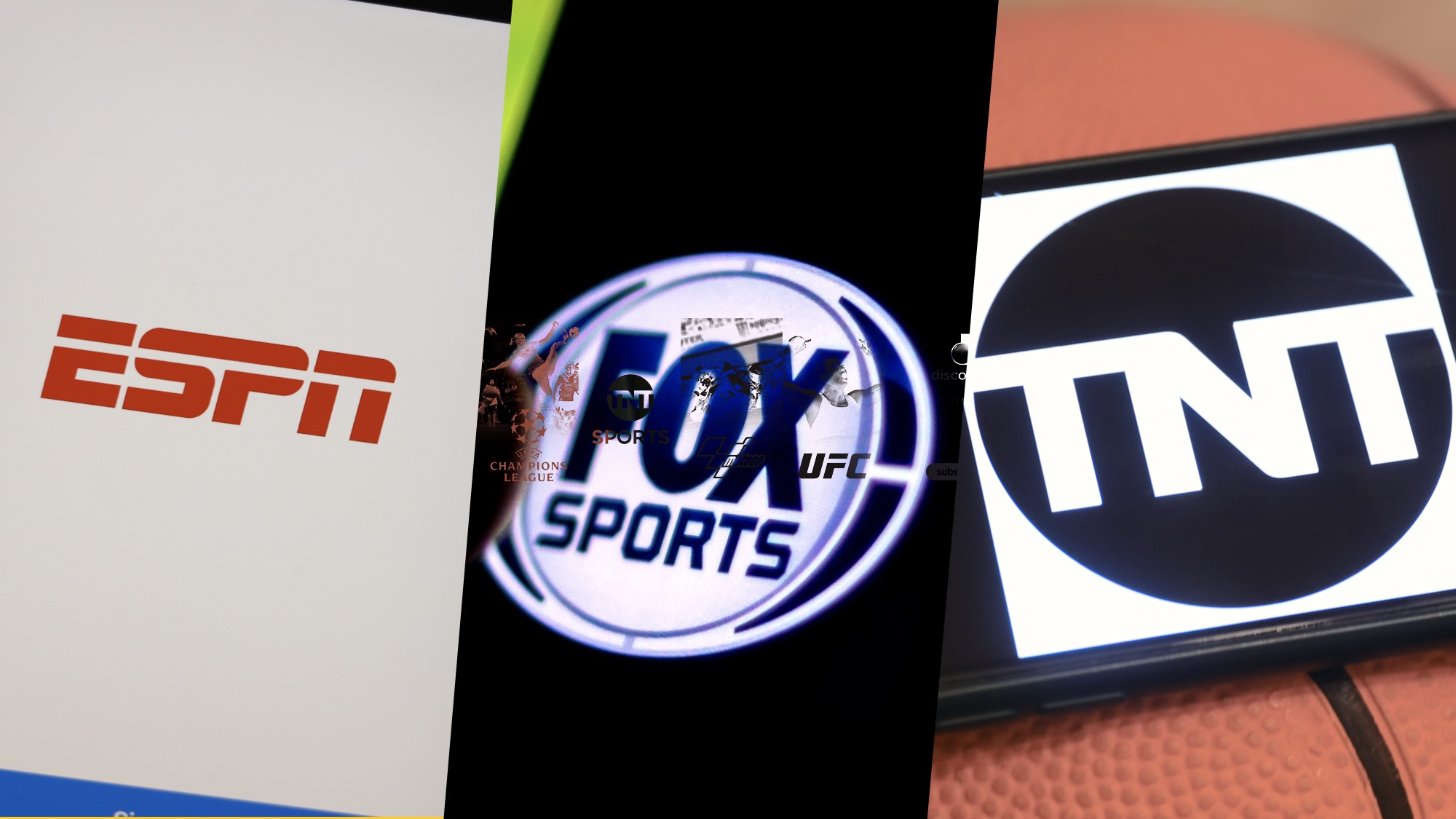
Earlier this month, Disney, Fox and Warner Bros. Discovery announced a joint streaming service dedicated solely to sports. This new streaming service would combine everything on offer from Disney's (ESPN) sports networks, Fox's sports networks and Warner Bros. Discovery's (Turner) sports networks.
Below is a full list of everything you can potentially expect to be on the streaming service.
- Disney: ESPN, ESPN2, ESPNU, SECN, ACCN, ESPNEWS, SSPN PLUS and ABC
- Warner Bros. Discovery: TNT, TBS and TruTV
- Fox: Fox, FS1, FS2 and BTN
If you're a cord-cutter who loves sports and is hesitant to opt for a cable TV alternative, this sounds pretty great. Between these networks, you get a ton of sports, including college football, college basketball, NFL, NBA, NHL, MLB and more.
Even better, you get them all in one place. That's a pretty enticing proposition if you're sick and tired of going back and forth between streaming services to get the game you want. But there's enough here to make me throw the challenge flag.
At what point is this sports streaming bundle too expensive?
First of all, how much is this going to cost? You can get some of our best cable alternatives for as little as $40 a month. Even YouTube TV will give you a lot of this for just $72.99 and for $4 more you can get Hulu + Live TV which gives you live sports channels in addition to ESPN Plus.
So to opt for this new streaming service over a cable alternative, the price has to be right. And with a proposed price point of $45 to $50 a month (though that's far from decided), you're already paying more than you would for Sling TV.
This brings me to the next problem: you don't get everything when you pay for this new streaming service. If you have Sling TV or another cable alternative, you also get other TV channels. If you opt for YouTube TV, Hulu + Live TV or Fubo, you even get CBS and NBC and some of their sports channels.
Those networks are notably absent from this new bundled joint streaming service, probably because Paramount and Comcast use sports as key selling points for Paramount Plus and Peacock. So asking for $50 a month, not offering additional content and then still missing out on two major networks feels like a big ask of consumers.
I'll only pay so much for what's still an imperfect solution
If these companies offer this new streaming service for around $30, then they have a real shot at filling a gap in the market. That'd be significantly lower than any cable TV offering or cable alternative. With ESPN Plus already costing $9.99, adding two more networks for a similar price per network feels fair.
But when we approach the $50 mark the cons start to outweigh the pros. You're paying for a service that, for now, includes no CBS or NBC sports, no regional sports networks and no additional content outside of sports. That's a lot of content that subscribers are missing out on. At a certain point, it's just not worth it to pay for an imperfect solution to what isn't a life-or-death problem for most consumers.







